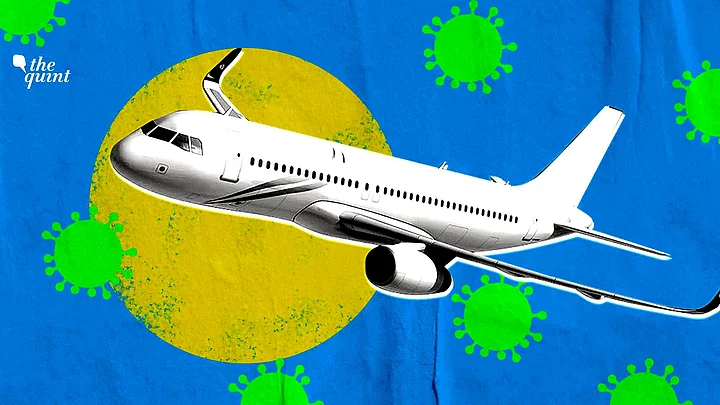Civil Aviation Minister Hardeep Singh Puri on Thursday, 16 July, said that India has signed bilateral air bubble agreements with France and the US that will allow airlines from these countries to operate international flights. These flights will resume service to and from India starting Friday.
So, what exactly are bilateral air bubbles? Why has India considered it at a time when cases are spiking? Here’s all you need to know.
What is a travel bubble? How does the concept work?
A travel bubble or a bilateral air bubble is a travel corridor between two countries that wish to reopen their borders and re-establish connections with each other. This is an exclusive partnership considered between countries that have either largely eliminated the virus, or trust the testing numbers.
Which are the countries India is considering travel bubbles with?
India has already established travel bubbles with the United States and France. It is considering similar arrangements with Germany and the United Kingdom.
Does this mean international flights to these countries are now operational?
Yes, while international travel remains suspended till 31 July, flights to and from these countries will be allowed on the basis of this bilateral agreement.
Who will be allowed to take these flights?
There is no clarity on this from the government yet. However, only those foreign nationals with a valid visa will be allowed inside India. As per an earlier release, only those people with Diplomatic, Business or Employment and Project visas and OCI card holders are allowed inside India.
Only the following people will be allowed to travel to the destination countries:
- Citizens of that country
- Indian nationals holding valid visa to the country, with visa validity of three months
- Indians having confirmed admission offers, along with visa validity of at least one month
How many flights have been agreed upon between the nations?
American carrier United Airlines will be flying 18 flights between India and the US from 17 July to July 31 and Air France will be operating 28 flights between Delhi, Mumbai, Bengaluru and Paris from 18 July to 1 August.
From India, Air India will be flying to the US and France, as per the agreement.
What are the quarantine guidelines for anyone who takes these flights?
The same guidelines as those who take the Vande Bharat flights will apply. In most states, passengers arriving from other countries will have to undergo seven days of institutional quarantine, followed by seven days of home quarantine.
Why has India considered these bubbles now?
India’s ‘consideration’ for air travel bubbles comes after the United States restricted ‘Vande Bharat’ repatriation flights being operated by Air India – accusing India of being “unfair,” and engaging in “discriminatory practices.”
To enter the US border, Air India needed authorisation from their government to conduct such flights. France, too, had asked India to fly to Paris without bringing incoming passengers.
Have other countries implemented travel bubbles?
Countries of Estonia, Lithuania, and Latvia were the first to create a bubble allowing free travel within the countries, while restricting outsiders from entering.
According to The New York Times, European Union countries are also likely to reopen air travel in order to revive their economies. However, they are considering blocking American citizens from entering their borders because they feel that the US has failed to contain the virus.
(At The Quint, we question everything. Play an active role in shaping our journalism by becoming a member today.)
